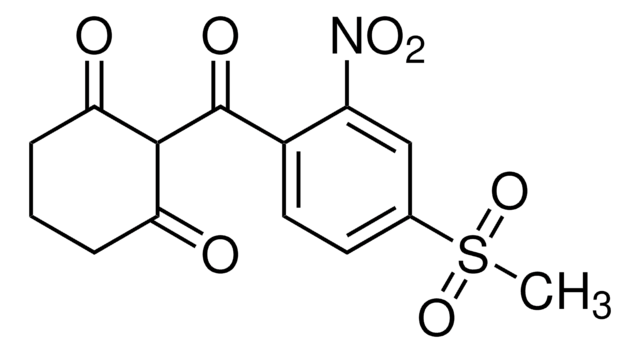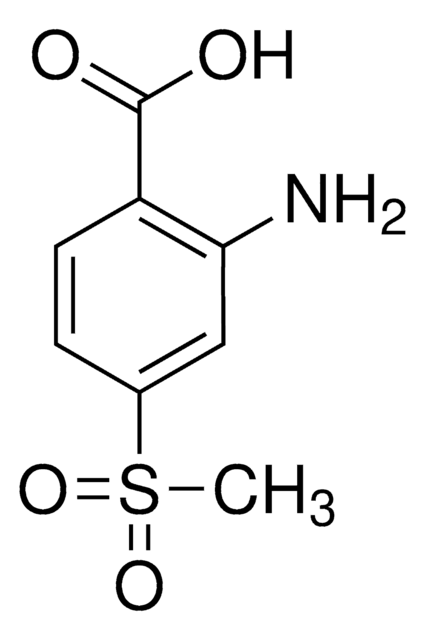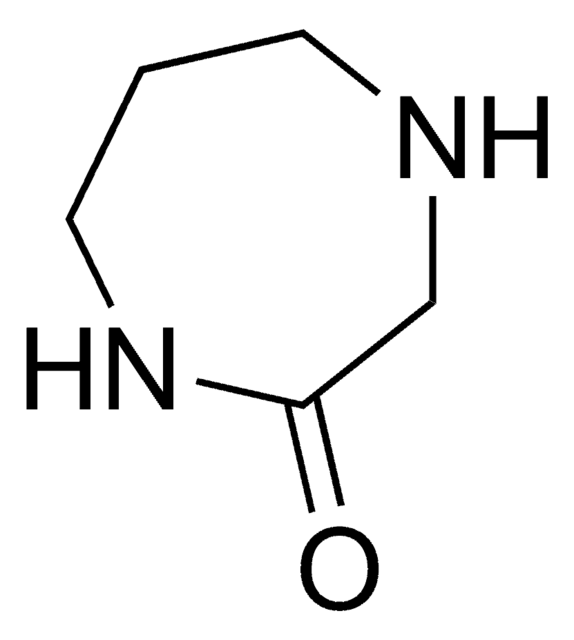CRM18124
Mesotrion Metabolite AMBA
certified reference material, TraceCERT®, Manufactured by: Sigma-Aldrich Production GmbH, Switzerland
Synonyme(s) :
2-Amino-4-(methylsulfonyl)benzoic acid
About This Item
Produits recommandés
Qualité
certified reference material
TraceCERT®
Niveau de qualité
Gamme de produits
TraceCERT®
Durée de conservation
limited shelf life, expiry date on the label
Fabricant/nom de marque
Manufactured by: Sigma-Aldrich Production GmbH, Switzerland
Format
neat
Température de stockage
−20°C
InChI
1S/C8H9NO4S/c1-14(12,13)5-2-3-6(8(10)11)7(9)4-5/h2-4H,9H2,1H3,(H,10,11)
Clé InChI
KFOGGDGNOLZBNY-UHFFFAOYSA-N
Vous recherchez des produits similaires ? Visite Guide de comparaison des produits
Description générale
Certified content by quantitative NMR incl. uncertainty and expiry date are given on the certificate.
Download your certificate at: http://www.sigma-aldrich.com
AMBA (2-amino-4-methylsulfonylbenzoic acid) is one of the metabolites formed from biodegradation of parent Mesotrione. Mesotrione is a selective herbicide that belongs to the triketone family, developed for use in maize culture as a substitute for atrazine. It is used for pre- and post-emergence control of common broad-leaved weeds, primarily in corn (maize). It acts by inhibiting the p-hydroxyphenylpyruvate dioxygenase (HPPD) enzyme, thus, blocking the production of carotenoid pigments in susceptible plants.
Mesotrion is currently approved for its use in the European Union. Maximum residue levels (MRLs) have been set according to Reg (EU) 2017/626 for mesotrione for various products of plant and animal origin from 0.01 to 0.05 mg/kg. Compared to the parent compound, AMBA metabolite is more persistent in soil and possess greater toxicity in selected microorganisms.
Application
- Study the biodegradation and toxicity of herbicide mixtures mesotrione, nicosulfuron, and S-metolachlor by a bacterial strain, Bacillus sp. Mes11
- Isolation and characterization of a Bacillus sp. from cloud water for rapid biotransformation of mesotrione herbicide
- Investigation of mesotrione biodegradation products by the bacterial strain Bacillus sp. 3B6 using liquid chromatography/electrospray ionization quadrupole time-of-flight mass spectrometry (LC/ESI-QTOF-MS)
- Qualitative and quantitative metabolic profiling of mesotrione, by the bacterial strain Bacillus sp. 3B6 using NMR, LC-NMR, and LC-MS
- Method development for the determination of the mesotrione and its two metabolites, MNBA and AMBA in rice, rice plants, rice hulls, water, and soil using UPLC and triple-quadrupole tandem mass spectrometry
Produits recommandés
Informations légales
Mention d'avertissement
Warning
Mentions de danger
Classification des risques
Acute Tox. 4 Dermal - Acute Tox. 4 Inhalation - Acute Tox. 4 Oral - Aquatic Chronic 3 - Eye Irrit. 2 - Skin Irrit. 2 - STOT SE 3
Organes cibles
Respiratory system
Code de la classe de stockage
11 - Combustible Solids
Classe de danger pour l'eau (WGK)
WGK 3
Point d'éclair (°F)
Not applicable
Point d'éclair (°C)
Not applicable
Faites votre choix parmi les versions les plus récentes :
Certificats d'analyse (COA)
Vous ne trouvez pas la bonne version ?
Si vous avez besoin d'une version particulière, vous pouvez rechercher un certificat spécifique par le numéro de lot.
Déjà en possession de ce produit ?
Retrouvez la documentation relative aux produits que vous avez récemment achetés dans la Bibliothèque de documents.
Notre équipe de scientifiques dispose d'une expérience dans tous les secteurs de la recherche, notamment en sciences de la vie, science des matériaux, synthèse chimique, chromatographie, analyse et dans de nombreux autres domaines..
Contacter notre Service technique








